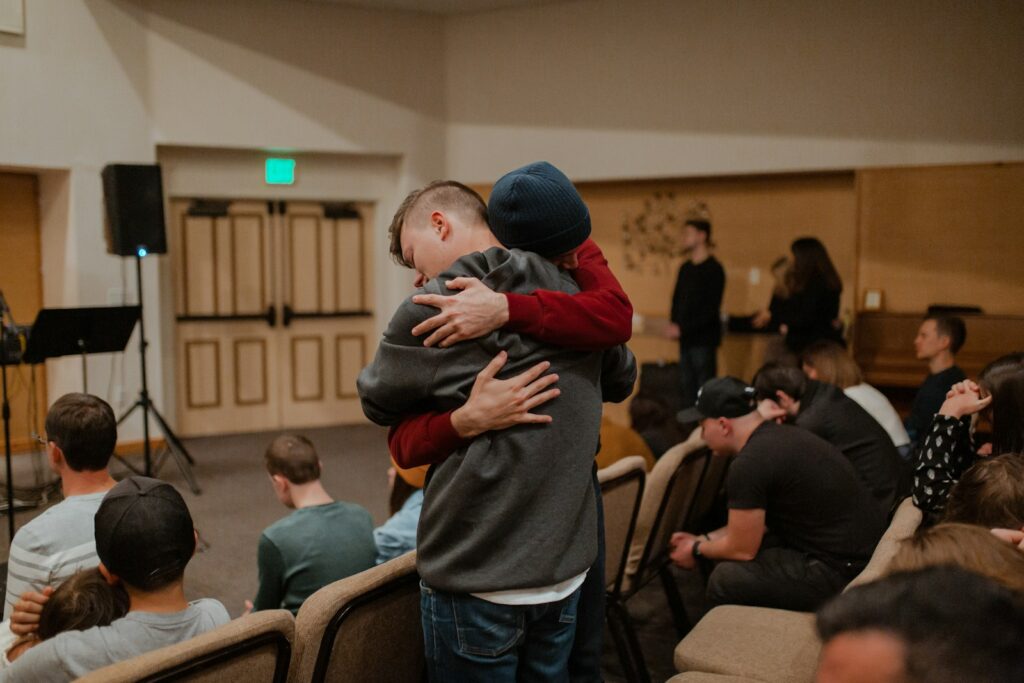
There’s something strange about reading the words of Jesus and then looking around at how most of us actually live. The gap feels wider than it should. Not because people don’t care or haven’t read the texts. It’s just that some teachings stick in memory while others slip through the cracks. These are the ones that don’t make it into Sunday morning highlight reels.
Love the People Who Make Your Life Harder

Jesus said to love your enemies. Do not tolerate them or pray for their downfall from a distance. Actually love them. That sounds impossible when someone has made your year miserable. But the teaching doesn’t come with an asterisk for difficult people. It’s there plainly. Most of us just nod and move past it.
Stop Keeping Score of Who Wronged You

Forgiveness wasn’t meant to be a one-time thing. Peter asked if seven times was enough. Jesus said more like seventy times seven. That’s not literal math. It’s the point that you’re supposed to stop counting. But we all keep mental tallies. Someone cuts you off in traffic, and you’re mad for an hour. Forgiving that many times sounds exhausting. Maybe that’s why it gets skipped over in practice.
Don’t Judge People When Your Own Life Is a Mess

He talked about the plank in your own eye before worrying about the speck in someone else’s. It’s a funny image if you picture it literally. Someone walking around with a wooden beam sticking out, trying to help with your eyelash problem. But it’s really about hypocrisy. We’re quick to point out what others are doing wrong while ignoring our own issues.
Being Important Means Serving People

Jesus washed feet. That was a job for servants back then. He told his followers that being great meant serving others. It wasn’t a metaphor for feeling good about yourself while staying comfortable. It meant actual work that benefits someone else. The kind that doesn’t come with recognition. That’s not how most people think about success. Climb the ladder, and someone else can handle the grunt work.
Don’t Hoard Things You Can’t Take With You

There’s a line about storing up treasures in heaven instead of on earth. Moths and rust and thieves. It’s practical advice wrapped in spiritual language. We spend so much time accumulating stuff. The storage unit industry exists because of it. But none of it matters in the end. People know this and still dedicate their lives to getting more. The tension between knowing and doing is massive.
Take Care of People Who Have Nothing

Jesus talked constantly about the poor. Feeding them, clothing them, not ignoring them. That shows up everywhere in the gospels. But it’s easier to donate once a year and feel like you’ve checked the box. Actually engaging with poverty is uncomfortable. Most people look past it. Not because they’re cruel but because it’s hard to know what to do.
Stop Worrying About Things That Haven’t Happened Yet

He said, “Don’t worry about tomorrow because today has enough trouble.” That’s almost funny in how true it is. We spend hours thinking about scenarios that never happen—lying in bed at three in the morning, going through every possible bad outcome. It doesn’t help anything. The teaching is to focus on now. But worry has a grip that’s hard to break, even when you know better.
Pray in Private Without Making a Show

There’s a whole section about not praying loudly in public to impress people. Jesus said to go into your room and close the door—just you and God. No audience. But there’s a performance aspect to a lot of modern faith. Social media posts about blessings. Public prayers that feel like speeches. The private part gets lost. It’s supposed to be personal and quiet. That doesn’t get as much attention, though.
Give Without Expecting Anything Back

When you give to someone in need, don’t do it so they’ll owe you. That’s in there clearly. But we’re conditioned to expect reciprocity. You help someone move, and they’d better help you next time. That’s fair by human standards. But the teaching says to give freely. No strings attached. No mental ledger. It’s a hard shift to make when everything else in life operates on an exchange basis.
Welcome Outsiders Like They Belong

Jesus ate with tax collectors and sinners. People, the religious folks avoided. He sat down and shared meals with them. Churches today claim everyone is welcome, but invisible boundaries exist. You walk in wearing the wrong thing or not knowing the rituals, and people get uncomfortable. The inclusion message is clear. The practice is different. Most communities have unspoken rules about who really belongs.
Turn the Other Cheek Instead of Hitting Back

Turning the other cheek goes against human instinct. Someone wrongs you, and everything in you wants to hit back. Jesus said Don’t. Break the cycle. Stop the retaliation. That sounds good in theory. In practice, when someone actually hurts you, all that teaching disappears. Self-defence feels necessary. You can’t be a doormat. But that’s what he taught. Choose not to perpetuate harm even when it’s hard.
Be a Peacemaker Even When It’s Easier to Pick Sides

Blessed are the peacemakers. Not the people who avoid conflict or stay neutral. The ones who actively work for peace. That’s exhausting in a world that runs on division. Family dinners where politics come up. Friendships that split over disagreements. Making peace means stepping into the mess. Most of us would rather stay out of it. It’s safer to let people fight and keep your head down.
Don’t Show Off Your Good Deeds

Jesus said, “When you do something good, don’t broadcast it.” That goes against everything we feel, though. You volunteer somewhere, and it feels natural to mention it. Post about it. Get some recognition for the effort. The teaching is clear about doing things quietly. No announcements. But that’s really hard when you’ve put in work and nobody even knows you did it.
Stop Pretending You’re Better Than You Are

Jesus called out hypocrisy. Religious leaders who looked perfect but were corrupt inside. Whitewashed tombs. We all do this, though. Present a cleaner version of ourselves than what’s real. Social media makes it obvious, but it happens everywhere. Acting fine at church while everything’s falling apart at home. The teacher says Be genuine. Drop the performance. That’s terrifying because it means showing the actual mess.
Treat People the Way You Want to Be Treated

The golden rule shows up everywhere, but Jesus taught it clearly. Do unto others as you’d want done to you. Sounds simple. Implementation is where it falls apart. You want patience when you make mistakes, but you’re harsh when others mess up. You want forgiveness but hold grudges. It only works if applied consistently. That takes constant attention.

